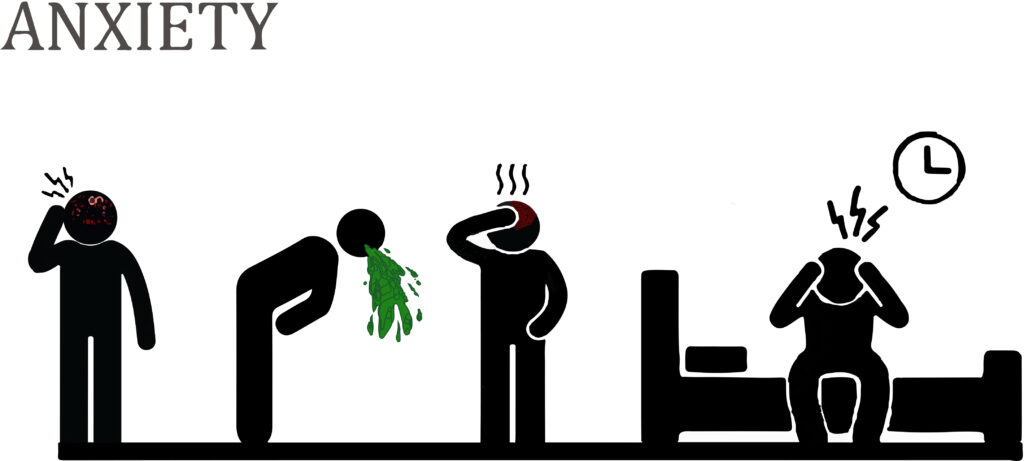Anxiety is an experience that many individuals face during their lives. While occasional anxiety can be a natural response to stress, persistent and intense feelings may indicate a disorder. Recognizing the symptoms may help individuals better understand their experiences and seek appropriate guidance.
What Are the Symptoms?
Anxiety manifests in various ways, both physically and emotionally. The symptoms can differ from person to person. These are five common indicators that someone may experience anxiety:
Excessive Worry
One of the hallmark symptoms is persistent and often overwhelming worry about everyday situations. Individuals may find their thoughts dominated by concerns that seem disproportionate to the circumstances. This type of worry often interferes with daily life, making it challenging to focus on other tasks.
Restlessness or Feeling on Edge
Another physical symptom that individuals may notice is restlessness. This includes feeling constantly on edge or having a sense of dread that something might go wrong. Restlessness may also present as irritability or an inability to relax, even in calm situations.
Difficulty Concentrating
Anxiety disrupts cognitive functioning, making it harder to concentrate or focus. This symptom may lead to difficulty completing tasks or following conversations. This can make those affected feel as though their thoughts are scattered or excessively preoccupied with concerns.
Physical Symptoms
Anxiety often brings about physical sensations. These include muscle tension, rapid heartbeat, sweating, trembling, or abdominal discomfort. Such symptoms can occur even without an apparent trigger, which makes them feel particularly concerning to the individual experiencing them.
Sleep Disturbances
Trouble falling or staying asleep is another common symptom associated with anxiety. Worries and racing thoughts may keep individuals awake, affecting the overall quality and duration of their rest. Sleep disturbances can also contribute to other symptoms, creating a cycle that exacerbates these feelings.
How Is Anxiety Treated?
Treatment approaches for anxiety often depend on the individual. Factors that can influence treatment methods are the patient’s symptoms, type of disorder, and personal preferences. Below are widely recognized methods used to help individuals manage the condition:
- Therapy: Therapy is an effective option for managing anxiety and addressing underlying causes. Cognitive-behavioral therapy (CBT) is commonly used to help individuals identify and modify unhelpful thought patterns.
- Medication: Medications may be recommended for some individuals to help manage symptoms. Medication typically complements other forms of treatment, such as therapy, to provide balanced support.
- Lifestyle Modifications: Adjusting lifestyle habits also helps with managing anxiety. Stress management and restricting caffeine intake can contribute to overall well-being and symptom reduction.
- Support Groups: Engaging with support groups can provide a safe space for individuals to share their experiences and receive encouragement.
Meet With a Mental Health Specialist
Recognizing the symptoms of anxiety and treatment options is a fundamental step toward taking action. If you are experiencing symptoms of anxiety, seeking guidance from a mental health professional can provide clarity and support. Working with a specialist helps individuals explore treatment options and develop personalized strategies to manage symptoms effectively. With the right resources, managing anxiety can become a more accessible process.

